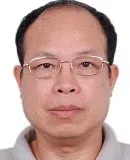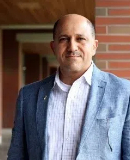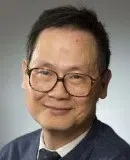
Yonghong Tan
Professor, Shanghai Normal University, Shanghai, ChinaResearch Interests: Modeling and control of nonlinear systems, mechatronics, intelligent control, and signal processing

Dr. Hossam A. Gabbar
Professor, Ontario Tech University, Canada
Fellow IET
 Gao.jpg)
David (Zhiwei) Gao
Associate Professor of Department: Mathematics, Physics and Electrical Engineering, Northumbria University, UK
IEEE Fellow, RAEng/Leverhulme Trust Research Fellowship, Fellow of AAIA, Co-EIC of IEEE Transactions on Industrial Informatics, Senior Editor of IEEE Access, Area Editor of Journal of Ambient Intelligence and Humanized Computing (Springer)
Research Interests:
Condition monitoring and fault diagnosis, fault tolerant design and control, machine learning and data-driven approaches, and their applications in wind turbine systems, power converters, power systems, onshore and offshore renewable energy systems
Biography:
Before joining Northumbira University, Dr Zhiwei Gao held research and academic positions respectively in Newcaslte University, University of Liverpool, University of Leicester, University of Manchester, University of Duisburg-Essen, and Tianjin University. He was the recipient of the Alexander von Humboldt Reserach Fellowship in 2004. He was elevated to the IEEE Fellow class in 2023. He is also Fellow of AAIA and Fellow of HEA. Dr. Gao is currently the Associate Editor of IEEE Transactions on Systems, Man, and Cybernetics: Systems, IEEE Transactions on Industrial Informatics, IEEE Transactions on Industral Electronics, IEEE Transactions on Automatic Control, ISA Transactions (Elsevier), Journal of Ambient Intelligence and Humanized Computing (Springer), and the editorial board member of Renewable Energy (Elsevier). From 2023, he has been appointed as the Senior Editor of IEEE Access.

Duc Truong Pham
Professor of Department of Mechanical Engineering, University of Birmingham, UK
Fellow of the Royal Academy of Engineering, Learned Society of Wales, Society of Manufacturing Engineers, Institution of Engineering and Technology, and Institution of Mechanical Engineers
Research Interests:
Rapid manufacturing, micro manufacturing, automation, robotics, IT and intelligent systems
Biography:
Duc Truong Pham’s academic output includes more than 600 technical papers and 17 books. He has supervised over 100 PhD theses to completion. He has won in excess of £30M in external research grants and contracts. In addition to pursuing and leading research, he has acted as a consultant to several major companies and has been active with knowledge transfer to industry, applying the results of his work to help multinational companies and SMEs generate wealth and create and safeguard jobs. He has lectured extensively abroad on his research and has delivered more than fifty keynote presentations at international conferences. He was Professeur Invité at École Centrale de Paris, Consulting Professor at HUST (China), Erskine Visiting Fellow at the University of Canterbury (New Zealand), Visiting Professor at the Université Paul Verlaine (France), Visiting Professor at King Saud University (Saudi Arabia), Strategic Scientist at Wuhan University of Technology and Honorary Professor at Xi’an Jiaotong University (China). He is a Fellow of the Royal Academy of Engineering, Learned Society of Wales, Society of Manufacturing Engineers, Institution of Engineering and Technology, and Institution of Mechanical Engineers.